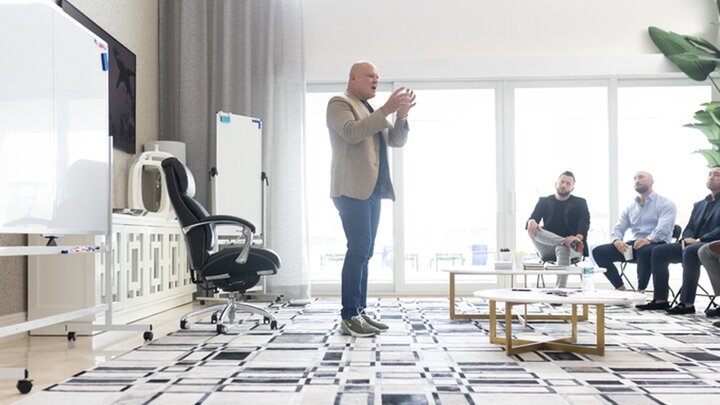Real estate mogul cautions about avoidable mistake when buying a home, explains how to avoid 'drowning'
Real estate mogul Shawn Meaike believes young Americans looking to purchase their first home need to prioritize discretionary income in the current climate of sky-high interest rates.
"If you become locked to your home, and you can't afford to do anything else, that's not a good purchase," Meaike told Fox News Digital.
Meaike believes potential homeowners need to make sure they’re comfortable with the amount of discretionary income that would be available on a monthly basis if they take the leap.
"What makes me nervous in today's world is how many people have literally shackled themselves to their home. They can't afford to buy it," he said.
"What you should be thinking about is, after I pay my mortgage, I got my principal, my interest, my taxes, my homeowner's insurance… every bill, and then I have money put aside in case something goes wrong," Meaike continued. "What do I have to live on? And where most young homeowners, homeowners in general, struggle is, they buy too much house."
Meaike believes "you never get hurt when you buy too little house," but feels many Americans fail to realize this.
"Everybody says, ‘It's my starter home,’ except they want more than they can afford. So, what money will you have left at the end of the month? Run your numbers," he said.
Meaike practiced what he preaches, and said he owned five or six primary residences before he purchased anything that was worth over $1 million. He began investing in rental properties in his early 20s as a way to add additional income and eventually accumulated hundreds of properties, launching him into a successful career as a serial entrepreneur who has earned generational wealth.
"I didn't have any money. I worked my butt off to make my money. I didn't want to be house rich and cash poor because I can make money with my cash," he said.
"I was never uncomfortable with where I lived, and I was never worried about what people thought about where I lived," he continued. "I was running companies that were doing, you know, tens of millions of dollars a year and living in a house in places people didn't want to come visit."
After finding the right-sized potential home and figuring out the discretionary income, buyers need to make tough decisions so that a dream doesn’t turn into a nightmare, Meaike said.
"Sit down and talk about it and figure out what you're willing to give up," he said, noting that young couples need to have important conversations.
"I don't want you calling in eight months, freaking out because you're locked into something that's drowning the both of you," Meaike said.
"How stable are both your jobs? How stable are they? If they're stable, and you've been there, and you feel good about it… but could you live on one income, or a reduced income?" he continued. "So, I think those are the questions you need to be asking yourself when you're looking for your first purchase."
Regardless of these factors, Meaike said he would be extremely hesitant to purchase anything given the current climate of inflated interest rates.
Economists predict that mortgage rates will remain elevated in 2024 and will only begin to fall once the Fed starts cutting rates. Even then, rates are unlikely to return to the lows seen during the pandemic.
"Would I buy something with a rate this high? No. I would never pay a bank that much money, I just wouldn’t," Meaike said.
Instead of rushing out to purchase something, Meaike suggests using the down payment money in low-risk investments until rates come down.
"I know a lot of very wealthy people have spent a number of years renting and using their money for other things," he said.

